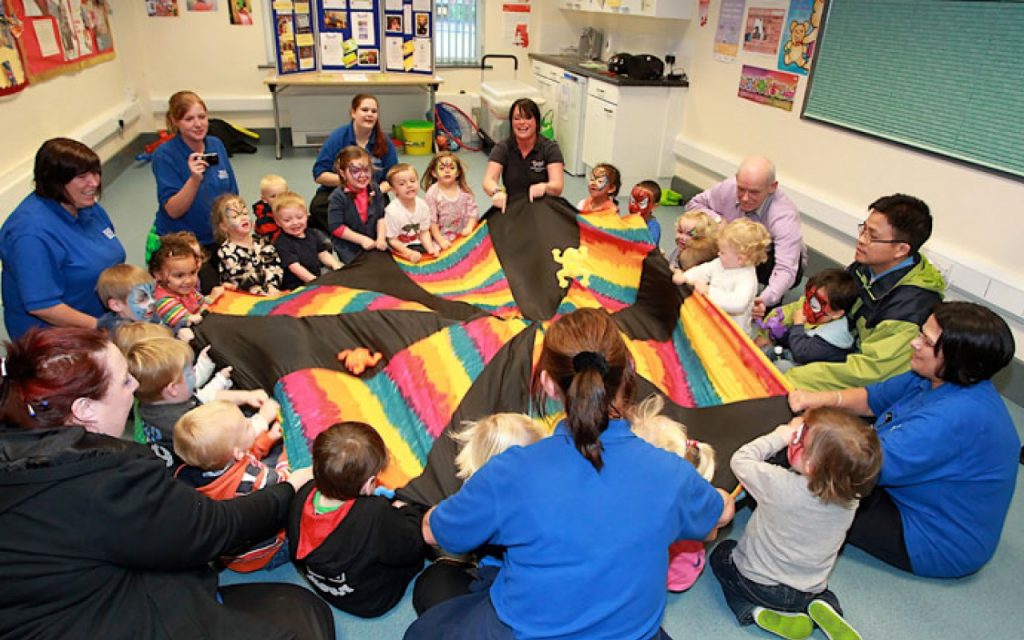I was in conversation with a fellow experienced Chair of Governors the other day. She spoke of “one of those heart-sinking moments” when she heard that Theresa May was planning to revive grammar schools, now confirmed. Between us, we have over 40 years’ experience volunteering as school governors. We agreed it almost feels like we’ve wasted our time all these years trying to help the schools we serve to raise standards and life chances for our pupils.
I call the proposal madness, sheer madness, for several reasons set out later in this post.
Enjoy Yourself
I have a broad picture of education policy and practice over my lifetime. I believe it is true that, back in the 1960s and 70s, education policy was, to some extent, driven by fashion. The latest ideas, the sexier-sounding the better, were implemented with little more basis than he (or she) who shouts loudest. Some of these ideas worked and have been retained in some form. Some didn’t and have fallen by the wayside. The most radical change in this period was the near-universal abolition of the 11-plus and the growth of comprehensive education. (More comprehensives opened under Margaret Thatcher’s period as Education Secretary than any other’s.)

The period from the late 70s through to 2000 saw a developing professionalism in the practice of pedagogy. University education departments and institutions such as the National College for Teaching and Leadership carried out research into what works. There was a steady upward trend in evidence-led changes to education policy. Key initiatives in the New Labour years included two important reforms above all:
- Every Child Matters, an antidote to narrow exam results as the only indicator of success. It stressed that every child, whatever their background or circumstances, should have the support they need to stay safe, be healthy, enjoy and achieve, make a positive contribution and achieve economic well-being.
- Sure Start centres, in recognition of the research which showed the importance of early years learning. Neuroscientific research has found that a child’s brain is 25% developed at birth, 80% developed by the aged of three. A US study found that the vocabulary used by three year olds in professional households was wider than that of the parents from the most deprived households. Those early years are crucial. Disadvantaged kids are way behind those more fortunate, long before they even start school.
Propaganda Ministers
The steady progress in implementing what works came to an abrupt halt in 2010 with the arrival of Michael Gove as Education Secretary. Policy making by evidence was replaced by ministerial whim. The logic behind the creation of academy schools was turned on its head. Free schools were introduced, spending public funds where groups lobbied for one, rather than where new places were needed. Local authorities were stripped of their powers to open new schools. This has led to the situation where local government has the legal duty to find a school place for everyone on their patch but without the powers to make it happen. The free schools programme was based on a Swedish initiative that was already being disowned by the politician who had introduced the scheme to Sweden. Funding for early years was slashed and 800 Sure Start centres have closed since 2010.
Compare this situation to Germany, where education is a non-political issue and structures and exam standards have barely changed in decades. In England, constant tinkering with curriculum and exam structures have left teacher confused and overworked. In the last school year alone, 14 changes to the Key Stage 2 curriculum were announced and, on the date pupils sat their SATs exams, the government hadn’t decided what the standards would be for the results.
No wonder teachers are leaving the profession in their droves or applying to emigrate to saner pastures abroad. When coupled to the shortfall in places filled on teacher training courses, I predict a major crisis of teacher shortages in 3-5 years’ time.
It’s Gonna Be Tougher
And now, to cap it all, we have Theresa May, without any electoral mandate, announcing the potential expansion of grammar schools. This is based on the entirely false argument that such schools aid social mobility. My earlier blog post, Stuck Inside of Mobile, explains why this is plain wrong. Briefly, it was the expansion in middle-class jobs in the economy of the 1950s and 60s, together with much more egalitarian tax and fiscal policies, which created opportunities for schoolchildren to find better jobs than their parents. It is merely coincidence that we had a more selective system at the time.
Even if the argument were true, times have changed significantly. Selective education at 11 was at a time when only 7% of students went to university (it’s now nearly 50%) and we had a major manufacturing base to absorb the 80-90% of 11-plus failures into work. But the social stigma and psychological damage of being branded a failure at eleven would be as true today as it was then.
Schools work best when there is a reasonable number of brighter children and pushy parents to support teachers in raising expectations and when the proportion of children from low-achieving, dysfunctional families is small. Too many of the latter can absorb a disproportionate amount of energy for school staff, That’s energy which could be applied for the benefit of all. With inspiring leadership and excellent teaching, good schools can close the prior attainment gap over the whole duration of a child’s schooling. Putting the majority of children into the slow lane at the arbitrary age of eleven makes no sense and offends every idea of helping the disadvantaged.

Remaining grammar schools have 3% of the intake entitled to free school meals, compared to 15% for all schools. Better-off parents can pay for private tuition to help their children pass the 11-plus. Good evidence exists of the effect of selection on pupil achievement. In selective areas, pupils in selective schools perform, on average, very slightly better than they would have done in a non-selective system. But the vast majority of children at, in effect, secondary moderns, perform far worse than their comprehensive-taught counterparts elsewhere. In short, selection makes it tougher overall to succeed.
Who’s Goin’ to Suffer?
The analysis is very clear: the disadvantaged children suffer worst under a selective system.
I’m often intrigued to see what hatred, distortions, delusions and lies are spewed out in the Daily Mail, or at least by peeking at its front-page headlines. Today’s was an absolute classic of its kind. The sub-heading read “All schools could become grammar schools”. How, exactly? For every grammar schools created, you need at least three secondary moderns. Or wait… I look forward to the apoplectic Daily Mail headlines of the future when 80% of schoolchildren have failed the entrance test for all the schools in their area and are roaming the streets in feral gangs!
My earlier blog post, Confused and Bewildered, took a sceptical view of Theresa May’s inaugural speech on the steps of 10 Downing Street. You know, the one where she promised to work for the disadvantaged. I said then that new Tory Prime Ministers have form on doing the opposite of what they say in the first flush of their appointment. Well, May has just taken the first step in that dishonourable tradition.
In memory of Prince Buster (Cecil Campbell) 1938-2016